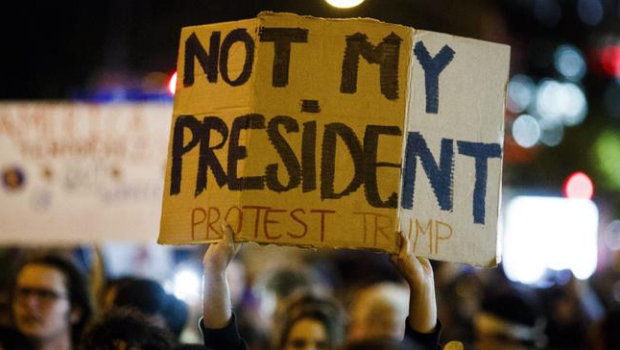Trump and Brexit Signal a Shift Away from Globalization
November 15, 2016
In a stunning and unprecedented turn of events, Donald J. Trump was elected the 45th president of the United States of America. His outrageous policies have drawn a crowd of mostly white, working-class people from rural areas who are dissatisfied with the status quo. They claim that the changing landscape of the nation through globalization and immigration has hit them the hardest. Similarly, in the UK, a narrow majority voted to leave the European Union, something that no one could’ve ever predicted. The citizens who voted for Brexit cite almost identical concerns as the Americans who voted for Trump. Both the Trump campaign and the “Leave” campaign in Britain have inspired an isolationist, xenophobic rhetoric that seems as though it will set the clock back decades on diversity and acceptance in the Western world.
Since 1776, America has been a haven for those struggling in other regions of the world. People of all cultures, races, and backgrounds have found solace in the wide open land that America offers, and the plentiful job opportunities in the cities. The Statue of Liberty comes to mind as a symbol of welcome into the nation, one that millions of immigrants in the early twentieth century felt elation upon seeing. Today, however, immigration has a different face in the United States. Getting into the country legally is a difficult process that can take up to fifteen years depending on the individual circumstance of the applicant. This huge backlog has led to millions entering the country illegally, most notably by crossing over the Mexican Border. The Pew Hispanic Center has estimated that about 8 million undocumented immigrants have entered the workforce in the US, the majority in Texas and California as seasonal farm workers. Middle-class, small-town, workers living in industrial states such as Ohio, Wisconsin, Indiana, and West Virginia see the lack of border control as one of the reasons as to why they are receding in terms of economic success, and Trump’s wild and often racist comments about illegal immigrants have caught their attention, in a big way.
In the UK, the age of Brexit is exposing a similar phenomenon. While a part of the EU, the UK had open borders to all citizens of the bloc, a fact that concerned the same kinds of people who latched onto Trump in America—lower-income, mostly white Britons living in rural areas. According to the Office of National Statistics, the number of migrant workers from the EU in the British workforce has spiked from 1.4 million in 2013 to 2.1 million today. Those who supported the “Leave” campaign claimed that the open border policy with other EU nations has left many British citizens unemployed and lowered the wages of those with jobs. The “Stay” campaign made it a point that diversity should be embraced, and that a competitive job market is a good thing for the economy.
Lower-income, older people in both the US and the UK feel like they’re being left behind in the rush of globalization and immigration, and that no one in their governments is seeing their plight or acting upon it. The statistics are clear: Trump easily beat Clinton among voters without a college degree and among those who make $50,000 to $90,000 a year. People 65 years and older, and in industrial, socially conservative states like West Virginia, Tennessee, and Kentucky were much more inclined to cast their vote for Trump. These “leftover people”—coal miners, factory workers, and auto repair workers, with little to no post-secondary education—swung the election for Trump. In the Brexit referendum in Britain, similar factors came into play. 61% of those 65 and older voted to leave the EU, 66% of those who have only completed high school voted to leave, and those in the lowest income bracket overwhelmingly voted to leave.
Many parallels can be drawn between the Leave campaign and the Trump campaign, with his promises to “build a wall” between the US and Mexico and deport millions of illegal immigrants, all to “make America great again.” The Clinton campaign took on another point of view, one of tolerance of immigrants, similar to that of the Stay campaign. This failed to resonate with people in rural, poor towns that rely on industries such as coal mining. Unfortunately, it seems as if the climates in both the US and the UK are shifting away from globalization, and to a less fluid national identity than the liberal bubble of mainstream media could’ve anticipated.







